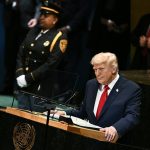
India Plans Tariff Retaliation as US Rejects WTO Notice
India is preparing to take strong trade action against the United States after Washington rejected New Delhi’s notice at the World Trade Organization (WTO) concerning high tariffs on steel and aluminium. The move signals a fresh escalation in trade tensions between the two nations, with India considering retaliatory duties on a range of American goods.
India-US Tariffs
India had formally notified the WTO on May 9 of its intent to suspend trade concessions if the ongoing dispute over metal tariffs was not resolved within 30 days. This action came in response to the United States’ steep import levies on steel and aluminium—initially set at 25% and later doubled to 50% on May 30.
The duties have significantly impacted Indian exporters, prompting the government to explore reciprocal tariffs on U.S. products, which could include items like almonds, walnuts, apples, and other non-essential imports that enjoy a strong market in India.
WTO Dispute
At the heart of the standoff lies a fundamental disagreement on classification. The United States contends that its metal tariffs are not safeguard measures but are instead rooted in national security concerns under Section 232 of the Trade Expansion Act. As a result, Washington refuses to treat the matter as subject to WTO dispute procedures.
India, however, insists that the tariffs amount to an unfair trade barrier and violate global trade norms. With formal consultations ruled out, India is turning to retaliatory action allowed under WTO rules when a dispute remains unresolved beyond a reasonable timeframe.
Retaliatory Duties
In light of the U.S. position, India is now actively considering suspending trade concessions and imposing retaliatory tariffs on selected American goods. The intent is to neutralize the economic impact on Indian industries, particularly in the steel and metal sectors, which have suffered due to the abrupt cost barriers imposed by the U.S.
Simultaneously, India is exploring parallel bilateral avenues for resolution. A high-level U.S. delegation is expected to visit India soon to discuss the broader trade relationship, which could offer a platform to de-escalate the situation through negotiation rather than escalation.
This dispute highlights a growing pattern of unilateral trade decisions by the U.S. and the increasing reliance of countries like India on multilateral institutions to assert their rights. It also underscores the broader geopolitical undertones influencing trade policy in a shifting global order.


















